 W
WGiacomo Acerbo, Baron of Aterno(25 July 1888 – 9 January 1969) was an Italian economist and politician who drafted the Acerbo Law.
 W
WGiulio Andreotti was an Italian politician and statesman who served as the 41st prime minister of Italy and leader of the Christian Democracy party; he was the sixth longest-serving prime minister since the Italian Unification and the second longest-serving post-war prime minister, after Silvio Berlusconi. Andreotti is widely considered the most powerful and prominent politician of the so-called First Republic.
 W
WPaolo Boselli was an Italian politician who served as the 34th prime minister of Italy during World War I.
 W
WLuigi Guglielmo Cambray-Digny was an Italian politician. He was born in Florence and he was the first mayor of his hometown. He was a recipient of the Order of Saints Maurice and Lazarus.
 W
WEmilio Colombo was an Italian politician, member of the Christian Democracy, who served as Prime Minister of Italy from August 1970 to February 1972.
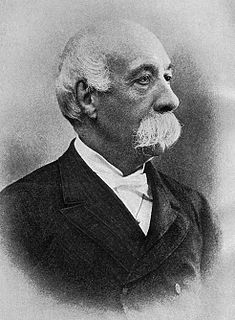 W
WFrancesco Crispi was an Italian patriot and statesman. He was among the main protagonists of the Risorgimento, a close friend and supporter of Giuseppe Mazzini and Giuseppe Garibaldi and one of the architects of Italian unification in 1860.
 W
WAlberto de' Stefani was an Italian politician and economist. Coming from a background in liberalism to Benito Mussolini's fascism, De Stefani was in charge of Italian economics from 1922 to 1925. His time in charge was characterized by laissez-faire ideals.
 W
WOttaviano Del Turco is an Italian politician.
 W
WAgostino Depretis was an Italian statesman and politician. He served as Prime Minister of Italy for several stretches between 1876 and 1887, and was leader of the Historical Left parliamentary group for more than a decade. He is the fourth-longest serving Prime Minister in Italian history, after Benito Mussolini, Giovanni Giolitti and Silvio Berlusconi. Depretis is widely considered one of the most powerful and important politicians in Italian history.
 W
WLuigi Numa Lorenzo Einaudi was an Italian politician and economist. He served as the second president of Italy from 1948 to 1955.
 W
WLuigi Facta was an Italian politician, journalist and the last Prime Minister of Italy before the leadership of Benito Mussolini.
 W
WAugusto Fantozzi was an Italian lawyer, tax expert, academic, businessman and politician who served as economy and finance minister and then, foreign trade minister.
 W
WFrancesco Ferrara (1810–1900) was an Italian economist, and political scientist. He helped introduce the classical economic theories of Adam Smith, David Ricardo, and J. S. Mill into Italian scholarship.
 W
WSalvatore Formica, best known as Rino Formica, is a former Italian politician.
 W
WDaniele Franco is an Italian economist, banker and civil servant who has been serving as Minister of Economy and Finance in the cabinet of Prime Minister Mario Draghi since 13 February 2021. From 2020 until 2021, he served as director-general of the Bank of Italy.
 W
WFranco Gallo, born 23 April 1937, is an Italian constitutionalist, former Minister of Finance and former President of the Italian Constitutional Court. He is a member of the Italy–USA Foundation and of the Accademia dei Lincei.
 W
WAntonio Gava was an Italian politician and member of Christian Democracy (DC). Son of the 13 times minister Silvio Gava, Antonio was one of the Christian Democratic Party's leading power-brokers in Campania over a 25-year period, beginning in 1968 and ending in 1993, when he was charged with membership of a criminal organisation. Together with Arnaldo Forlani and Vincenzo Scotti, he was the leader of DC's current known as "Alleanza Popolare".
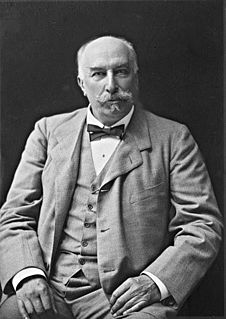 W
WGiovanni Giolitti was an Italian statesman. He was the Prime Minister of Italy five times between 1892 and 1921. He is the second-longest serving Prime Minister in Italian history, after Benito Mussolini. He was a prominent leader of the Historical Left and the Liberal Union. Giolitti is widely considered one of the most powerful and important politicians in Italian history and, due to his dominant position in Italian politics, he was accused by critics of being an authoritarian leader and a parliamentary dictator.
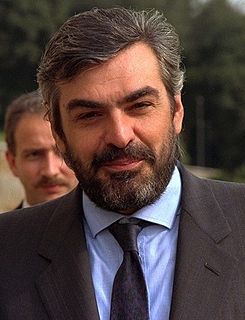 W
WGiovanni Giuseppe Goria (Italian pronunciation: [dʒoˈvanni dʒuˈzɛppe ɡoˈriːa]; 30 July 1943 – 21 May 1994) was an Italian politician. He served as the 46th prime minister of Italy from 1987 until 1988.
 W
WVittorio Grilli is an Italian economist and academic. He was Italy's minister of economy and finance from 2012 to 2013 as part of the Monti cabinet.
 W
WBernardino Grimaldi was an Italian politician. He was a Minister in several governments.
 W
WRoberto Gualtieri is an Italian historian, academic and politician of the Democratic Party (PD), incumbent Mayor of Rome since 2021 and Minister of Economy and Finances in the government of Prime Minister Giuseppe Conte from 2019 until 2021. He previously was a member of the European Parliament from 2009 to 2019, where he chaired the influential Economic and Monetary Affairs Committee within the Parliament from 2014 until 2019.
 W
WGuido Jung was a successful Jewish-born Italian banker and merchant from Sicily, who later converted to Catholicism.
 W
WAgostino Magliani, Italian financier, was a native of Laurino, near Salerno.
 W
WFranco Maria Malfatti was an Italian politician who served as the 3rd President of the European Commission from 1970 to 1972. He served at Italian level as Italian Minister of Foreign Affairs from 1979 to 1980 and Italian Minister of Education from 1973 to 1978.
 W
WMario Martinelli was an Italian resistance member during the Fascist Italy and a conservative politician who was a member of Christian Democracy. He was the undisputed leader of the party in the Como region. He held several government posts and was a long-term member of the Italian Parliament, Italian Senate and the European Parliament.
 W
WMarco Minghetti was an Italian economist and statesman.
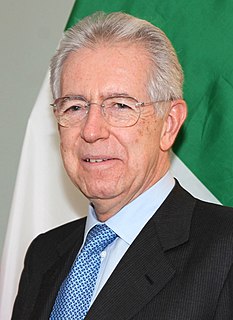 W
WMario Monti, is an Italian economist who served as the Prime Minister of Italy from 2011 to 2013, leading a technocratic government in the wake of the Italian debt crisis.
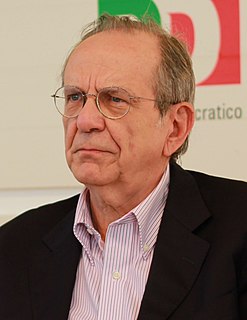 W
WPier Carlo Padoan is an Italian economist who served as Minister of Economy and Finance of Italy from 2014 to 2018.
 W
WTommaso Padoa-Schioppa, OMRI was an Italian banker and economist who was Italy's Minister of Economy and Finance from May 2006 until May 2008. He is considered as a founding father of the European single currency. He is a former member of the Steering Committee of the Bilderberg Group.
 W
WFilippo Maria Pandolfi is a former Italian politician, minister, and European commissioner.
 W
WGiuseppe Pella was an Italian Christian Democratic politician who served as the 31st prime minister of Italy from 1953 to 1954. He was also Minister of Treasury, Budget and of Foreign Affairs during the 1950s and early 1960s. Pella served as President of the European Parliament from 1954 to 1956 after the death of Alcide De Gasperi.
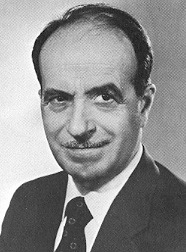 W
WLuigi Preti was an Italian politician and member of the Italian Democratic Socialist Party.
 W
WLuigi Rava was an Italian politician. He was born in Ravenna. He served on the faculty of the University of Bologna. He was mayor of Rome (1920–1921). He served in the Chamber of Deputies and Senate of the Kingdom of Italy. He was a recipient of the Order of Saints Maurice and Lazarus. He died in Rome, Italy.
 W
WOronzo Reale was an Italian politician, who served as justice minister in the 1960s and 1970s.
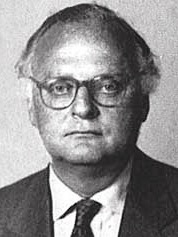 W
WFranco Reviglio is an Italian academic, businessman and socialist politician, who served in various capacities in the public administration of Italy.
 W
WPietro Rosano was an Italian politician and lawyer.
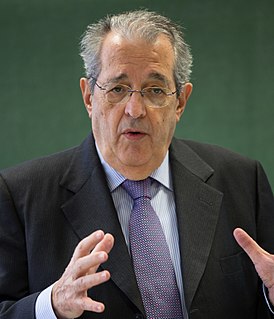 W
WFabrizio Saccomanni was an Italian economist, civil servant and the former Director General of the Bank of Italy. He served as minister of economy and finance between April 2013 and February 2014. From 13 April 2018 until his death, Saccomanni was the chairman of UniCredit.
 W
WAntonio Salandra was a conservative Italian politician who served as the 21st prime minister of Italy between 1914 and 1916. He ensured the entry of Italy in World War I on the side of the Triple Entente to fulfil Italy’s irredentist claims.
 W
WMauro Scoccimarro was an Italian economist and communist politician. He was one of the founders of the Italian Communist Party and the minister of finance between 1945 and 1947.
 W
WFederico Seismit-Doda, born in Ragusa (Dubrovnik), in the Kingdom of Dalmatia, 1825 and died in Rome 1893. He was an Italian politician. He graduated from the University of Padua and collaborated at Caffè Pedrocchi; in 1849 fought with the volunteers in Veneto and in 1849 participated in the defence of Roman Republic. After exile to Greece and to Piedmont in 1850, he collaborated in various newspapers and magazines, and published a volume of his memories Venetian Volunteers.
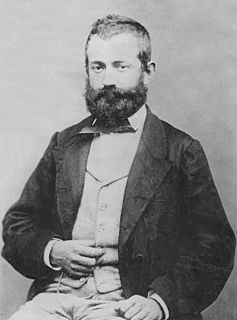 W
WQuintino Sella was an Italian politician, economist and mountaineer.
 W
WDomenico Siniscalco is an Italian economist and former Minister of Finance.
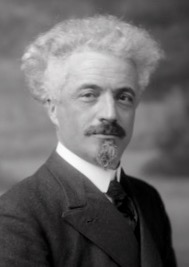 W
WMarcello Soleri was an Italian politician and an officer of the prestigious Alpini infantry corps. He is widely viewed as one of the leading exponents of political liberalism in twentieth century Italy. Soleri was a Member of Parliament between 1913 and 1929. During 1921/22 he served successively as Italian Minister of Finance and as Italian Minister of War. After the fall of Mussolini he returned to government in 1944 as Italian Minister of Treasury under Prime Minister Bonomi.
 W
WSidney Costantino, Baron Sonnino was an Italian statesman, 19th prime minister of Italy and twice served briefly as one, in 1906 and again from 1909 to 1910. He also was the Italian minister of Foreign Affairs during the First World War, representing Italy at the 1919 Paris Peace Conference. He was the third Italian prime minister to be of Jewish descent, after Alessandro Fortis and Luigi Luzzatti.
 W
WGaetano Stammati was an Italian politician, lecturer, public executive and banker.
 W
WMario Tanassi was an Italian politician, who was several times Minister of the Italian Republic. In 1979 he was condemned by the Constitutional Court of Italy for his involvement in the Lockheed bribery scandal.
 W
WPaolo Emilio Taviani was an Italian political leader, economist and historian of the career of Christopher Columbus.
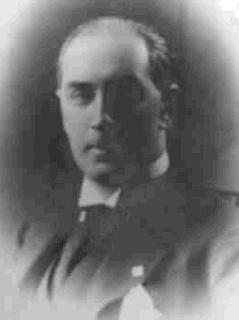 W
WPaolo Ignazio Maria Thaon di Revel was an Italian politician and fencer. He was the son of Count Vittorio Thaon di Revel and Elfrida Maria Atkinson. He fought in the First World War. He was also Mayor of Torino (1929–35) and Italian Minister of Finance (1935–43) in the Mussolini Cabinet. After the war, he was president of the organising committee of the 1956 Winter Olympics at Cortina d'Ampezzo.
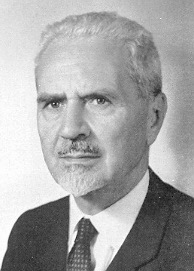 W
WRoberto Tremelloni was an Italian economist, academic, businessman and a social democrat politician. He served in different cabinets of Italy.
 W
WGiulio Tremonti is an Italian politician. He served in the government of Italy as Minister of Economy and Finance under Prime Minister Silvio Berlusconi from 1994 to 1995, from 2001 to 2004, from 2005 to 2006, and from 2008 to 2011.
 W
WGiovanni Tria is an Italian economist and university professor who served as the Italian Minister of Economy and Finance in the Conte I Cabinet. He is the current Adviser of the Ministry of Economic Development (MED) since 9 March 2021 in the Draghi Cabinet.
 W
WAthos Valsecchi was an Italian Christian Democrat politician. He served several times in Italian governments as undersecretary and minister. He was a member of the Chamber of Deputies of Italy in Legislature I, Legislature II and Legislature III, while he was a member of the Senate in Legislature IV, Legislature V and Legislature VI.
 W
WEzio Vanoni was an Italian economist and politician who served as Minister of Finance from May 1948 to January 1954 and Minister Budget from January 1954 until February 1956.
 W
WVincenzo Alfonso Visco is an Italian politician and economist who has served as a government minister.
 W
WBruno Visentini was an Italian politician, senator, minister, lecturer and industrialist.
 W
WGiuseppe Volpi, 1st Count of Misrata was an Italian businessman and politician.
 W
WLeone Wollemborg was an Italian economist and politician. He made significant contributions to the spread of cooperative enterprises, specifically rural credit unions and agricultural cooperative banks.
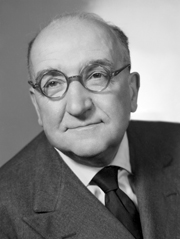 W
WAdone Zoli was an Italian politician who served as the 35th prime minister of Italy from May 1957 to July 1958; he was the first senator to have ever held the office.